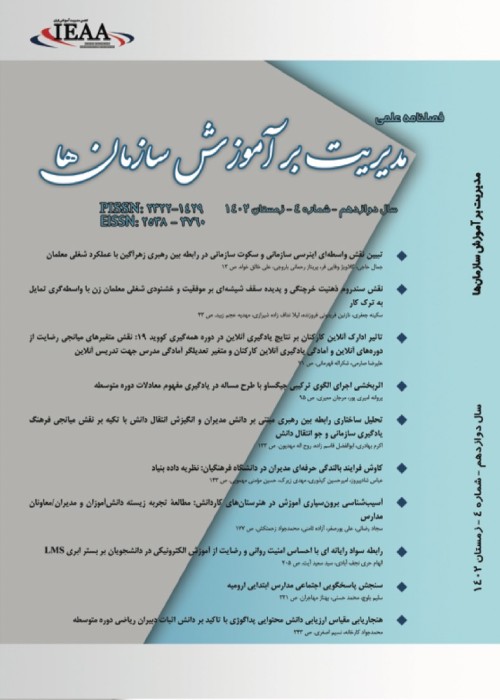The relationship between computer literacy and the feeling of psychological security and satisfaction with e-learning in students on the LMS cloud platform
The aim of this study was to determine the relationship between computer literacy and the feeling of psychological security and satisfaction with virtual education in the students of Payam Noor University in Isfahan province. The research method used is descriptive and correlational. The statistical population includes all undergraduate students of Payam Noor University of Isfahan who studied in the academic years of 1400-1401 and used virtual education based on the learning management system (LMS). A number of 415 students from this community were selected using available sampling method and were exposed to three standard questionnaires for measuring computer literacy, satisfaction questionnaire for virtual education and psychological security questionnaire through the online response link. The validity and reliability of these questionnaires are confirmed. In the present study, the construct validity of the questionnaires was investigated through factor analysis. Cronbach's alpha test was also used to measure the reliability, and the reliability of the questionnaires was estimated to be 0.84, 0.94 and 0.87, respectively. The findings showed that there is a positive and significant relationship between computer literacy and the degree of psychological security and satisfaction with virtual education, and computer literacy is an important variable in predicting the feeling of psychological security and satisfaction with virtual education, which means that students who have higher computer literacy had, the satisfaction of virtual education is more in them, as well as the students who had higher literacy; The level of psychological security is higher in them. Also, there is a significant multiple direct relationship between computer literacy and the satisfaction components of virtual education, and the satisfaction components of virtual education can be predicted through computer literacy. In such a way that students with high computer literacy were at a higher level than other students in terms of information retrieval skills, access to electronic resources, independent learning ability, and the use of necessary tools and facilities in the context of virtual education.
- حق عضویت دریافتی صرف حمایت از نشریات عضو و نگهداری، تکمیل و توسعه مگیران میشود.
- پرداخت حق اشتراک و دانلود مقالات اجازه بازنشر آن در سایر رسانههای چاپی و دیجیتال را به کاربر نمیدهد.


